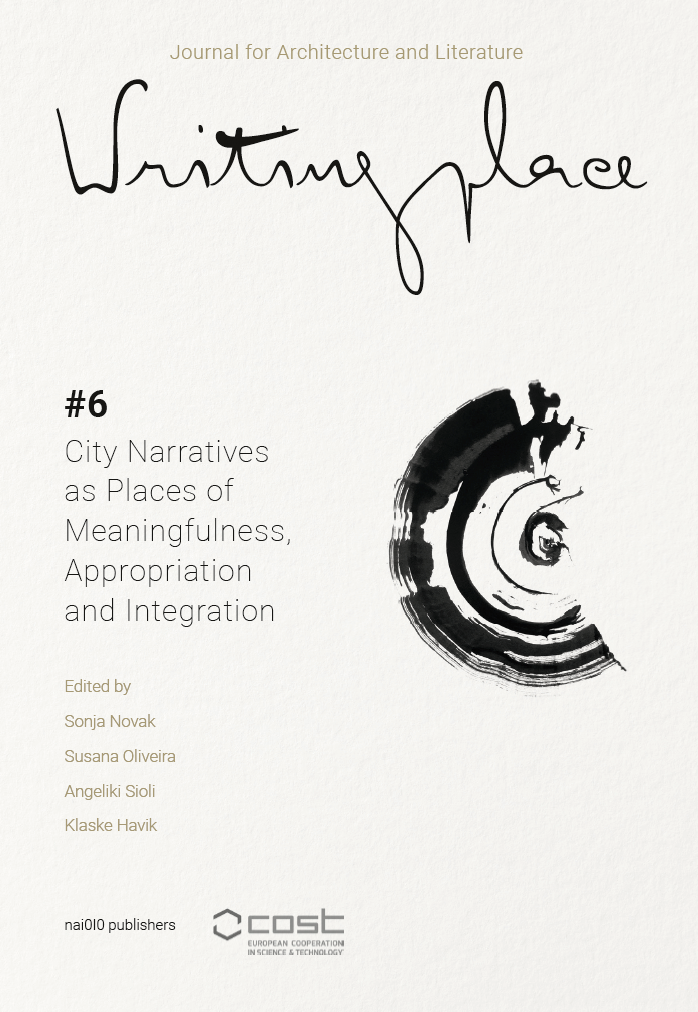Beyond Community Inclusivity through Spatial Interventions
DOI:
https://doi.org/10.7480/writingplace.6.6361Abstract
This article argues against the concept of integration as the main mechanism allowing various sociocultural groups to live together and instead proposes ‘radical inclusivity’ as a better, less oppressive model of a pluralistic society. Through analytical and reflective research on the non-cohesion-based approach to integration or inclusion, this article is devoted to examining the affordances and limitations of integration through various forms of spatial interventions. As an example, we will discuss the Ellesmere Green Project in Sheffield (UK) as a typical small urban regeneration executed in a highly diverse part of Sheffield. This piece aims to bring forward the significance of moving beyond the community-as-cohesion model in urban politics and planning for integration.
References
Sophie Hinger and Reinhard Schweitzer, Politics of (Dis)Integration (Cham, Switzerland, 2020).
Jenny Phillimore, ‘Implementing Integration in the UK: Lessons for Integration Theory, Policy and Practice’, Policy and Politics 40/4 (2012), 525-545.
Wendy Brown, The Rise of Antidemocratic Politics in the West (New York, 2019).
Saskia Sassen, Expulsions: Brutality and Complexity in the Global Economy (Cambridge, MA, 2014).
Pierre Manent, An Intellectual History of Liberalism, Vol. 1 (Princeton, 1996).
Michael Bommes, Migration und nationaler Wohlfahrtsstaat: Ein differenzierungstheoretischer Entwurf (Wiesbaden, 2013).
Adrian Favell, ‘Integration: Twelve Propositions after Schinkel’, Comparative Migration Studies 7/1 (2019). See also: Sabine Hess, Jana Binder and Johannes Moser, No Integration?!: kulturwissenschaftliche Beiträge zur Integrationsdebatte in Europa (Bielefeld, 2015).
Andrada Costoiu, ‘Migrants’ Integration in Host Societies: Modes of Minorities’ Integration: Explaining Historical, Economic and Political Factors’, Identity 2/2 (2008), 2-17.
Ana-Simina Sava, ‘The Integration of the Muslim Communities in the European Union’, Research and Science Today 12/2 (2016), 60-68.
Gesa Helms, Marina Vishmidt and Lauren Berlant, ‘Affect and the Politics of Austerity: An Interview Exchange with Lauren Berlant’, Variant Magazine 39-40 (2010).
Edward W. Soja, Seeking Spatial Justice (Minneapolis, 2010).
Iris Marion Young, Justice and the Politics of Difference (Princeton, 1990).
Judith Butler, The Force of Non-Violence: An Ethico-Political Band (London/New York, 2020).
Anonymized Source 1.
Roberto Esposito, Communitas: The Origin and Destiny of Community (Redwood City, CA, 2000).
Giorgio Agamben, The Coming Community (Minneapolis, 1993).
AbdouMaliq Simone, ‘People as Infrastructure: Interesting Fragments in Johannesburg’, Public Culture 16/3 (2004), 407-429.
Richard Sennett, ‘The World Wants More ‘Porous’ Cities: So Why Don’t We Build Them?’, The Guardian, 27 November 2015, available online at: theguardian.com/cities/2015/nov/27/ delhi-electronic-market-urbanist-dream.
Andrew Azzopardi and Shaun Grech (eds.), Inclusive Communities: A Critical Reader (Rotterdam, 2012), 48.
Sheffield City Council, The Ellesmere Green Proposals: Design and Access Statement (Sheffield, 2007).
2011 Census, ONS.
Sara Ahmed, On Being Included: Racism and Diversity in Institutional Life (Durham, NC, 2012).
Jacques Rancière, The Philosopher and His Poor, edited by Andrew Parker and translated by John Drury, Corinne Oster and Andrew Parker (Durham, NC, 2003), 226.
Jacques Rancière, Dissensus: On Politics and Aesthetics, translated and edited by Steven Corcoran (London, 2015).
Downloads
Published
How to Cite
Issue
Section
License
Copyright (c) 2022 Asma Mehan, Krzysztof Nawratek, Farouq Tahar

This work is licensed under a Creative Commons Attribution 4.0 International License.



